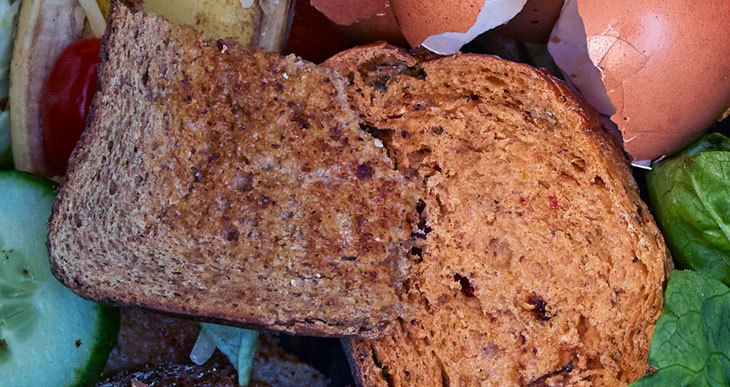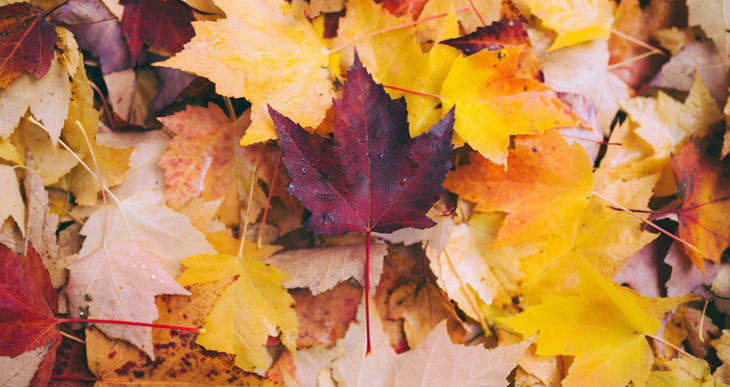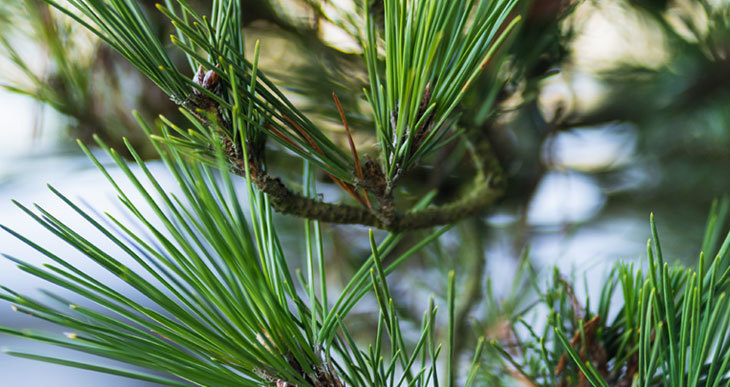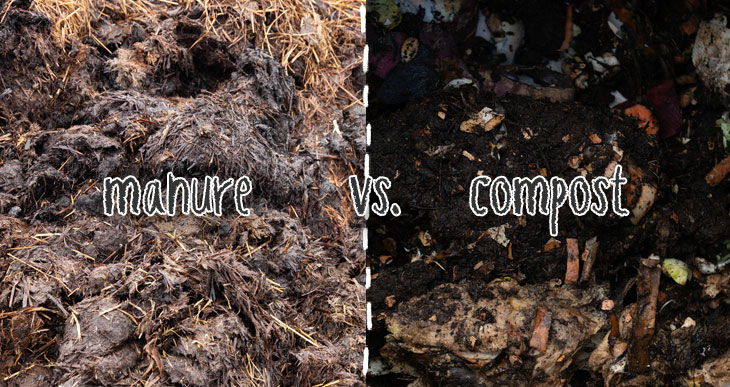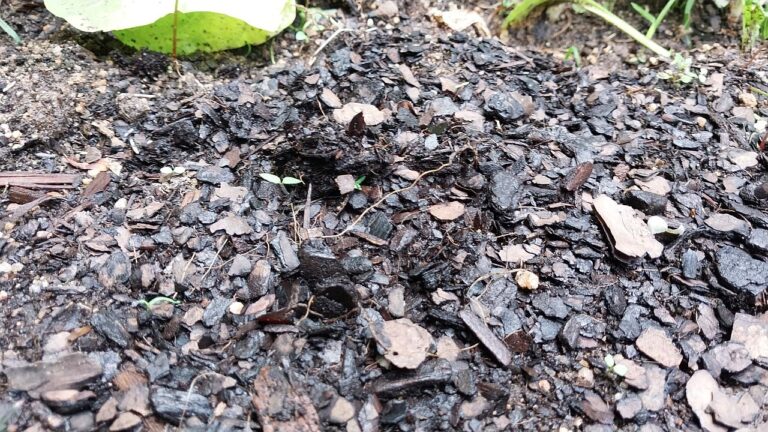Composting Wood Chips (Quick & Easy!)
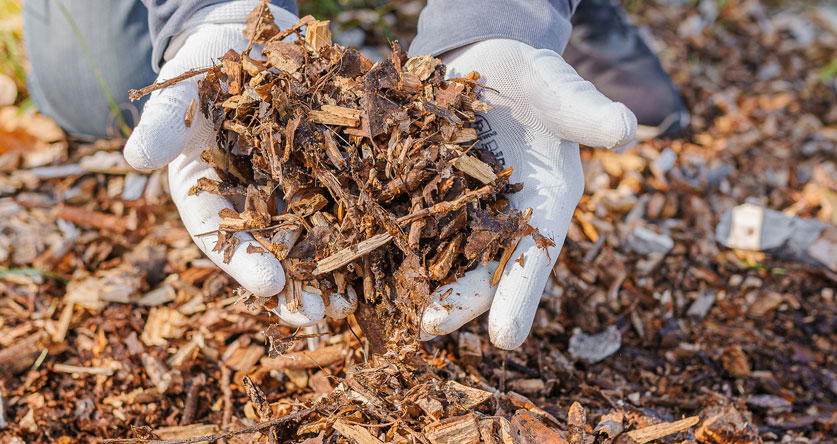
Wood chips are an organic material, and all organic matter rots!
But many gardeners are reluctant to use this fantastic source in their composting.
So why do some people not use wood chips in compost, and how can these difficulties be overcome?
Let’s find out…
Composting Wood Chips
Making wood chips at home is effortless these days. It’s a great way to use fallen branches or any other wooden material lying around the garden.
Most folks use this material as mulch. But when you don’t need more mulch, what do you do?
Chipping wood and adding it to compost is a great way to benefit from this natural resource. But there are a few issues to keep in mind when using this substance in your compost.
After all… It’s an excellent source of carbon! Why waste it 🙂
Can You Compost Wood Chips?
Composting wood chips can be done. They offer a valuable nutrient source for the compost and bring beneficial fungi into the composting process. Using methods such as hot composting, ensuring the wood chips are small, or a few other techniques will help to break the woody material down faster.
Some gardeners are against using wood chips as a composting material because there are a few problems associated with their use. However, wood chips offer a valuable and often cheap organic material to boost your composting efforts and increase the nutrient value of the end product.
However, using wood chips in your compost requires changing your approach to compost-making to get the most out of the wood chips and get them to break down fast.
People who exclude wood chips are missing out on a significant carbon source for the finished compost.
Are Wood Chips Good For Compost?
Wood chips are an organic product and, as such, are beneficial for composting and can be good for your finished compost.
Composting recipes require adding brown or carbon-rich materials and green or nitrogen-rich materials to balance the compost and result in a healthy, nutritious end product. The ratio of green to brown is essential, and finding enough of each type of ingredient can be a struggle.
Wood chips are an excellent carbon source for composting and are often cheaper to obtain than other components.
In many cases, landscape companies see it as a waste product and offer it for free or at a meager price.
Wood chips bring many other benefits to your composting operation besides adding sought-after carbon to the equation.
Adding Wood Chips To Compost
To better understand the impact of incorporating wood chips into compost, let’s examine the pros and cons of adding wood chips to compost.
The disadvantages of adding wood chips to compost include the following:
- Slow to break down. Wood chips are a hard, woody material that takes a long time to decompose in compost. Woody material can take 6 months or more to completely break down in the composting process.
- Sucks up nitrogen from the compost. Woody materials, including wood chips, absorb nitrogen from the compost as part of their decomposition process. This lowers the amount of available nitrogen in the compost. The wood will eventually release the nitrogen, but this takes a long time.
- A higher level of green material is required. A higher ratio of green or fresh material is needed in the composting process to offset the nitrogen usage by the wood chips.
- Attracts termites. If you have a termite problem in your area, adding wood chips can lure these creatures to your compost.
With that being said, many of the negative aspects of adding wood chips to compost can be overcome by using simple techniques to counteract the adverse effects, and bring the following advantages:
- Wood chips enhance the compost fungal component. Fungi prefer to reproduce on woody plant material. The wood chips will encourage fungal development, which speeds up the composting process and adds biodiversity to the microorganisms in the compost. (This is very good!)
- Less risk of pesticide contamination. Wood chips pose less risk of introducing pesticides to compost than other brown materials such as hay, straw, or sugarcane, which may have been treated with these poisons.
- Less chance of weed introduction. Other brown compost materials from the grass family can transfer weed seeds to your compost, introducing new weeds to your garden.
- Better airflow in the compost. The larger wood chunks provide structure to the compost, creating more air pockets and airflow and promoting an aerobic composting environment. Oxygen is an essential component. An aerobic environment fosters the development of beneficial bacteria for the composting process.
What Kind Of Wood Chips Are Best For Composting?
The types of wood chips best for composting are softwood trees since they will break down faster in the composting process.
Cypress, mahogany, oak, redwood, and cedar are particularly slow to break down in compost. Other hardwood trees will likewise take longer to decompose than wood chips from softwood trees.
Wood chips from toxic trees such as yew should not be composted unless you use the hot compost method, which will break down the toxins in the wood from these trees.
How To Compost Wood Chips Fast
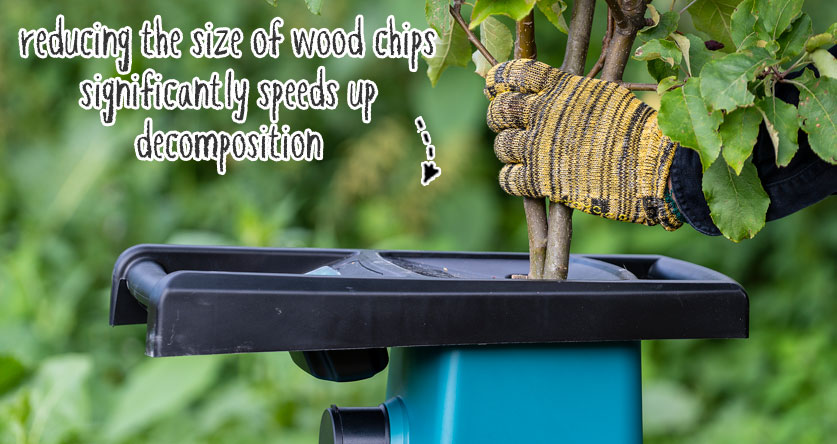
One of the main reasons that people are reluctant to add wood chips to their compost is the time it takes for the woody material to break down.
However, you can make several adjustments and employ different techniques in your composting process to speed up the decomposition.
Most of these are relatively easy to implement and maintain throughout the composting process.
Use Smaller Wood Chips
The larger the wood chips are, the longer they will take to break down in the compost. Therefore, the ideal size of wood chips you should aim for should not be larger than 1 to 2-inches long or 2.5 to 5cm.
Course chips can be “re-chipped” by running them back through the shredding machine.
It’s best to purchase a wood chipper capable of reducing the wood material to chunks of this size. Go for something like this model with a high reduction ratio (above 20:1 is a good measure – link to Amazon).
Let The Chips Rot First!
Pre-rotting the wood chips can be a helpful strategy for improving the decomposition rate before you add them to your compost pile.
Fungi are attracted to decaying wood debris. These white molds encourage advanced decomposition of the cellulose in the wood, which in turn will be devoured by various microbes. This cycle of different microorganisms slowly increases the available nitrogen.
Adding partially decayed and moldy wood chips to compost gives you a head start!
Get The Green To Brown Ratio Correct
If you are familiar with composting, you will be aware that, generally, the ratio of greens to browns of the components added to the mix should be about 2 browns to 1 green.
When composting with wood chips, increase this ratio to a 50:50 split, with equal amounts of greens and browns added to the compost. This ups the nitrogen content in the pile to speed up the breakdown of the woody material.
As the compost matures, you can return to a standard ratio of 2/3rds brown to 1/3rd green.
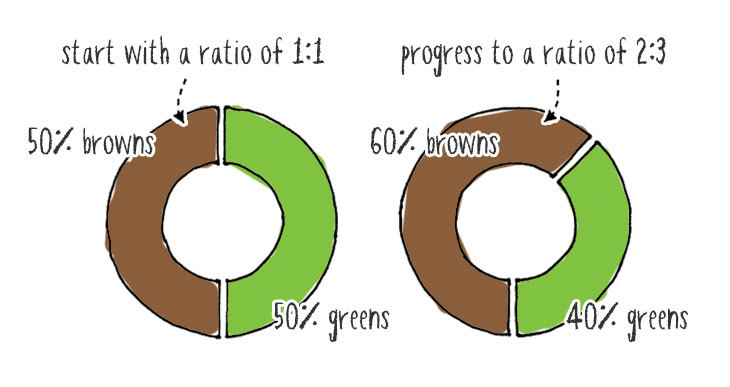
Adding Nitrogen To Wood Chips
As mentioned, increasing the ratio of greens in the compost mix will raise nitrogen levels. Still, there are other methods to boost this component even further.
One of the best methods I have found to quicken the breakdown of wood chips is to add chicken manure to the compost. Chicken manure adds valuable nutrients, but more importantly, it is nitrogen-rich and will enhance the overall nitrogen in the compost.
Keep The Moisture Content Up
Wood chips in compost, especially the layers on the outside of the pile, can lose moisture to the environment and dry out.
Wetting the compost down more regularly will prevent the wood chips from drying out. As the wood fibers expand and separate from the additional moisture, the more the decomposing microbes can enter deeper into the woody material to break it down.
Turn The Chip Compost Frequently
Turning wood chip compost frequently helps distribute moisture, air, and microbes evenly throughout the pile. In addition, this tactic provides a more even and faster decomposition of the wood chips.
Turning wood chip compost up to 3 or 4 times a week will be beneficial in speeding up the process.
Hot Composting Wood Chips
Hot composting is a technique that is ideal for breaking down wood chips faster than cold composting.
Increasing the temperature inside the compost pile by covering it with a tarp or black plastic and locating your compost pile in a sunny spot will significantly speed up the breakdown of wood chips!
Composting Wood Chips With Urea (Urine)
Compost-grade urea is available as a compost accelerator from most garden centers. Adding 2 handfuls of urea to the pile when you start the composting process and an additional handful every 3 to 4 weeks will speed up the decomposition of wood chips.
Composting Wood Chips And Cow Manure (Or Other Manures)
Adding cow manure or other herbivorous livestock waste to the compost will help to increase the wood chips’ decomposition rate. In addition, the manure adds the requisite nitrogen and other microbes to accelerate the composting process.
How Long Does It Take To Compost Wood Chips?
In some cases, wood chips can take years to fully decompose into finished compost.
However, making an effort to speed up the composting process of this valuable resource can significantly reduce this timeframe.
Remember, using small-sized wood chips and implementing some of the measures above can result in well-composted wood chips in as little as 3 months in warmer climates. (5 to 6 months in cooler climates).


